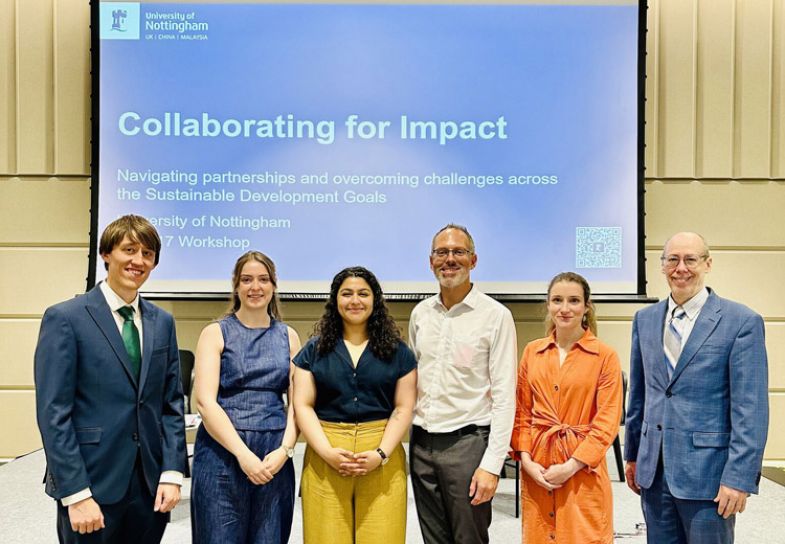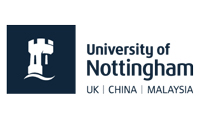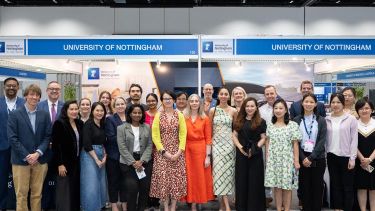
Source:
THE Events

Early-career researchers play a vital role in innovating solutions to deal with global sustainability challenges but often face barriers in obtaining buy-in for their ideas
“It’s easy to talk about research, but the benefits won’t happen without collaboration and partnership,” said Jack Bobo, director of the Food Systems Institute at the University of Nottingham, at a session, held in partnership with the university, during the 2024 THE Global Sustainable Development Congress. He set the scene with some statistics on the complex challenges faced in global food supply: 40 per cent of all land on earth is already being used for agriculture; around 70 per cent of our fresh water goes into agriculture and 10 to 15 per cent of greenhouse gases are emitted during the production of food.
During the session, researchers in different areas of sustainability from the university detailed the successes and frustrations they had experienced in building partnerships with key stakeholders, including industry and government. Amy-Louise Johnston, Engineering and Physical Sciences Research Council (EPSRC) doctoral prize fellow at the university, described the “optimism-to-overwhelm” cycle she had experienced when beginning her research into the removal of pharmaceuticals from wastewater. “You’re motivated by the impact of your research but this can quickly become overwhelming,” she said.
“You realise that Sustainable Development Goals (SDGs) overlap with each other; that you need to make your research relate to what industry wants and find a way to bridge that gap.” One of the most effective routes Johnston has found has been through informal, interdisciplinary collaborations at the university, working with teams from different disciplines and using shared facilities. She has also been able to further her research by sampling wastewater effluent from local treatment works. “We need to empower early career researchers to form partnerships,” she said.
Luke Woodliffe, also an EPSRC doctoral prize fellow at the university, described his research into post-combustion carbon capture, which prevents carbon dioxide from getting into the atmosphere in the first place. His team is working on the creation of magnetic metal-organic framework composites, which can soak up carbon dioxide like a sponge and be more quickly regenerated for reuse than existing solutions. Woodliffe outlined the challenges he had experienced in working with industrial partners, who tended to require researchers to sign over intellectual property through complex non-disclosure agreements. “Science is not always the most difficult part; transitioning that science to industry and impact can be far more difficult,” he said.
Morag Nixon, a PhD researcher at the university, said she had found a bacterium that helps to break down plastics in the recycling process and can generate new products from waste. She already has an industry partnership with the chemicals company Johnson Matthey but still encounters challenges in realising its potential. “There are barriers in terms of infrastructure: a collaborator would need to build a pilot plant to process the plastics, we’d need to scale it up and someone would have to pay for it. Then there is the question of how we get the waste on-site and sort it – there are so many stakeholders in the pipeline,” she explained.
Finally, PhD researcher Hiba Azim discussed the challenges of building confidence in her research into green ammonia. Its application as a green energy source relies on green hydrogen, but this is a concept that suffers from public perception issues because it is potentially flammable. “Pilots of hydrogen trains or buses would give people real-life assurance this is safe, but this requires manufacturers to build special equipment, and they will only do this if governments roll out policies,” she said. Describing this as a “hamster wheel of doom”, she implored stakeholders to consider the power of partnership with researchers if we are to collectively meet SDGs.
The panel:
- Hiba Azim, PhD researcher, University of Nottingham
- Jack Bobo, director of the Food Systems Institute at the University of Nottingham
- Amy-Louise Johnston, Engineering and Physical Sciences Research Council doctoral prize fellow, University of Nottingham
- Morag Nixon, PhD researcher, University of Nottingham
- Luke Woodliffe, Engineering and Physical Sciences Research Council doctoral prize fellow, University of Nottingham
Find out more about the University of Nottingham.


